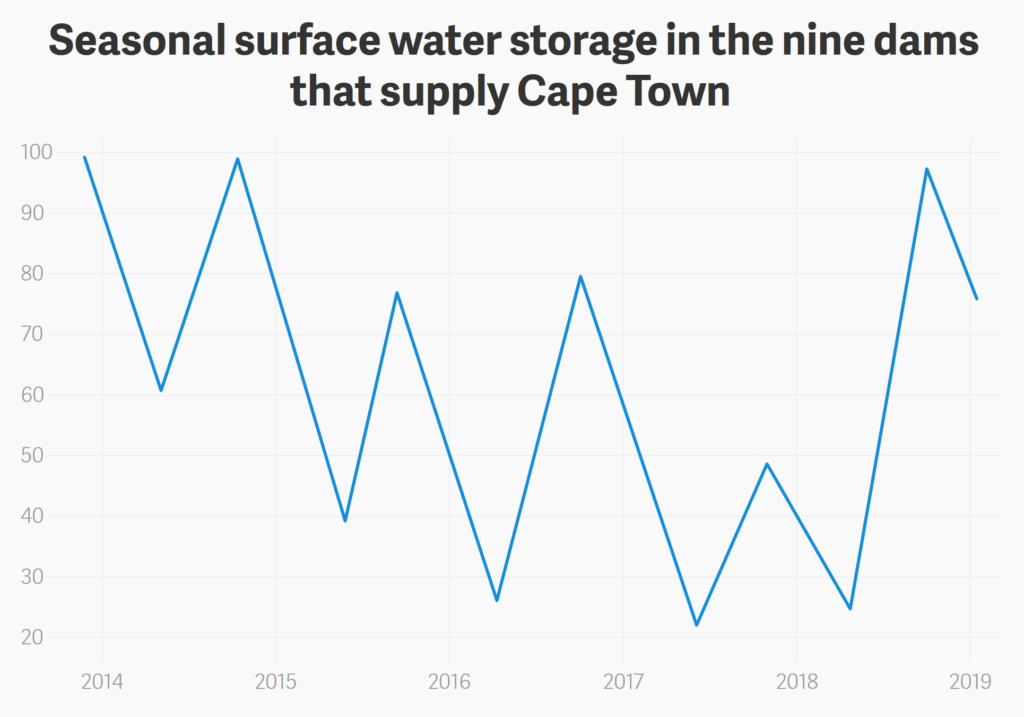Life after climate change: lessons from Cape Town – “We have collectively decided not to stop climate change, so the future will be about mitigating its effects”

By Simon Kuper
27 March 2019
(Financial Times) – In the flat where I stayed in Cape Town last month, the bathtub felt like a relic of a lost civilisation. It may never be used again. Beside it was a shower containing an egg timer. The two-minute wash has been standard here since the recent three-year drought. In the city’s public bathrooms, a dribble comes out of the tap. Posters everywhere warn against wasting water.
This is what adapting to climate change looks like. Last year, Cape Town nearly became the first big city on earth to run dry. Daily water rations dropped to 50 litres per person per day, with the spectre of 25 litres if supplies ran out on “Day Zero”. The drought broke just in time, but the city’s planners now expect permanent water scarcity. Rationing, which initially felt like wartime austerity, has become normal.
We have collectively decided not to stop climate change — carbon dioxide emissions hit a record in 2018 — so the future will be about mitigating its effects. Every region faces its own threat, whether from heat, flooding, drought or hurricanes. Whatever the problem, Cape Town’s glimpse of the future offers lessons for everyone:
- An existential climate crisis creates almost instant consensus on action. I didn’t hear anyone in Cape Town dismiss climate change as an elite hobby, or argue against rationing. On the contrary, water was an almost automatic topic of conversation with people of all classes, well ahead of May’s South African elections. The only arguments were about how to access (and ration) water.
- Climate change is a class issue. For people who live in shanty towns outside Cape Town without running water, it’s always Day Zero. Yet a crisis was proclaimed only when rich Capetonians and companies were affected too. [more]